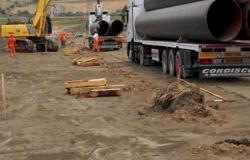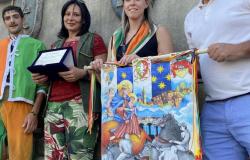In recent days a series of violence and clashes have broken out in New Caledoniaa territory French overseas located in the South Pacific, after France passed a constitutional amendment to allow citizens who recently arrived in the area to vote in provincial elections. The amendment, which some local leaders fear could dilute the electoral clout of the indigenous Kanak people, is the latest event in a decades-long clash over France’s role on the island.
This clash has worsened in recent days, with shops looted and public buildings set on fire, but above all with numerous deaths and injuries. The French government decided to deploy troops to secure the ports and main airport as the unrest continues. Speaking after chairing a crisis meeting, French Prime Minister Gabriel Attal said that a ban on the use of TikTok will be introduced and a new curfew to try to restore calm. President Emmanuel Macron had previously declared a state of emergency.
Where is New Caledonia located. Bottom left, the east coast of Australia (Google Earth)
How did we get to this situation?
New Caledonia today is home to 270 thousand people, of which 41% are Kanak Melanesians and 24% from people of European origin, mainly French. The archipelago was named by the British explorer James Cook in 1774 and it was annexed by France in 1853, used as a penal colony until shortly before the end of the nineteenth century. After French colonization in the nineteenth century, New Caledonia it officially became a French overseas territory in 1946. A 1998 agreement helped end the conflict by outlining a path to gradual autonomy and granting the right to vote to the Kanaks and to migrants residing in New Caledonia before 1998. The agreement provided for three referendums to determine the country’s future: in all three, independence was rejected.
According to the terms of the agreement, therefore, voting in provincial elections it was limited to people who resided in New Caledonia before 1998, and their children. The measure aimed to give greater representation to the Kanak, who had become a minority population. Paris has lately begun to view the agreement as undemocratic, and lawmakers have approved a constitutional amendment to include it people who have lived in New Caledonia for at least ten years.
Macron said he would delay the promulgation of the law and invite representatives of the territory’s population to Paris for talks in order to hold negotiations. However, he said a new agreement it must be achieved by June or he will sign it into law anyway. New Caledonia, one of five Indo-Pacific island territories held by France, is central to Emmanuel Macron’s plan to increase French influence in the Pacific. The world’s third largest producer of nickel, it is located at the center of a geopolitically complex maritime region, where China and the United States compete for power and influence over security and trade.





